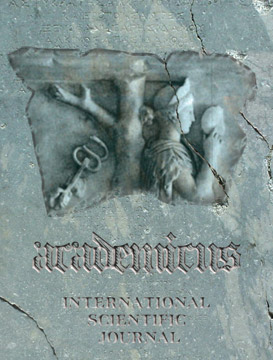Title:
Author(s):
Abstract:
The question of whether a single leader type will emerge as one of the possible effects of globalization has required research on the subject. In the context of culture, Hofsthede, Brodbeck et al, and GLOBE studies, revealing that different leadership characteristics come to the fore in different geographies with cultural influences, refuting the claim that a uniform leader model will emerge with globalization. Among the aforementioned studies, GLOBE studies went a little further and claimed that leadership is actually a function of culture. Leadership research in the Balkans, which is a tangle of cultures with its complex ethnic structure, is relatively less included in the literature. The main purpose of this article is; Despite this problem arising from the Cold War period, how the leadership styles are in the Balkans is to examine the relationship between Balkan style leadership and culture. At the same time, the article has a secondary purpose that questions whether the claim that “there is not a single Balkans” is also valid for leadership practices when it comes to culture. Literature review and observation method were used in the research. The observations mainly include the observations made in Albania between the years of 2012-2015. On the other hand, the literature review is based on the data obtained primarily from local studies about each country in the Balkans. The results obtained emphasize that when it comes to leadership in the Balkan countries, the first thing is that political leadership is understood, which draws attention to autocratic leadership from the socialist administration period. In the context of business leadership, it shows that autocratic leadership was effective in the 10-year transition period after the Cold War, and that transformational leadership began to come to the fore in the 2000s at varying speed and rate according to institutions and countries. As a result of the investigations, the article shows that quite similar leadership characteristics stand out for the Balkans, the culture of democracy has not yet fully settled in this context, the avoidance of uncertainty in social codes, the autocratic administration still has an important place as a reflection of cultural dimensions such as the distance of power, on the other hand, willingness to change with new generations, more democratic leadership expectations increase and transformational leadership comes to the fore with the change in geography. Although the article has limitations in terms of containing observations specific to one country, it supports the claims in terms of including the local research results of the countries and is considered to contribute to the literature for the Balkans where limited research is available.
Keywords:
leadership; Balkans; autocratic leadership; transformational leadership; culture
Full Text PDF:
References:
View complete reference list, click
here
Digital Object Identifier DOI:
The article's content ©Academicus™ A Cultural Perspectıve to Leadership Practices in Balkans
by
Dr. (PhD) Nizamettin Doğar
is licensed under a Creative Commons
Attribution-NonCommercial 4.0 International License.
Presented:
November 2020
Included for Publishing:
December 2020
Published:
January 2021,
Volume 12,
Issue 23
Academicus International Scientific Journal is an Open Access Journal. This means that all content is freely available without charge to the user or his/her institution. Users are allowed to read, download, print, search, or link to the full texts of the articles in this journal without asking prior permission from the publisher or the author. This is in accordance with the BOAI definition of open access. Users are obliged to cite the source (Academicus International Scientific Journal) and the author, according to the international citation standards.
To learn more about the OA Policy followed by Academicus ISJ, read Journal Regulations
Academicus
International Scientific Journal
pISSN 2079-3715
eISSN 2309-1088
Address:
Sheshi i Flamurit, Rruga Muze
Al-9401 Vlorë, Albania
Tel: +355 68 60 60 555
info@academicus.edu.al
https://academicus.edu.al



 Scholar
Scholar
 Crossref
Crossref
